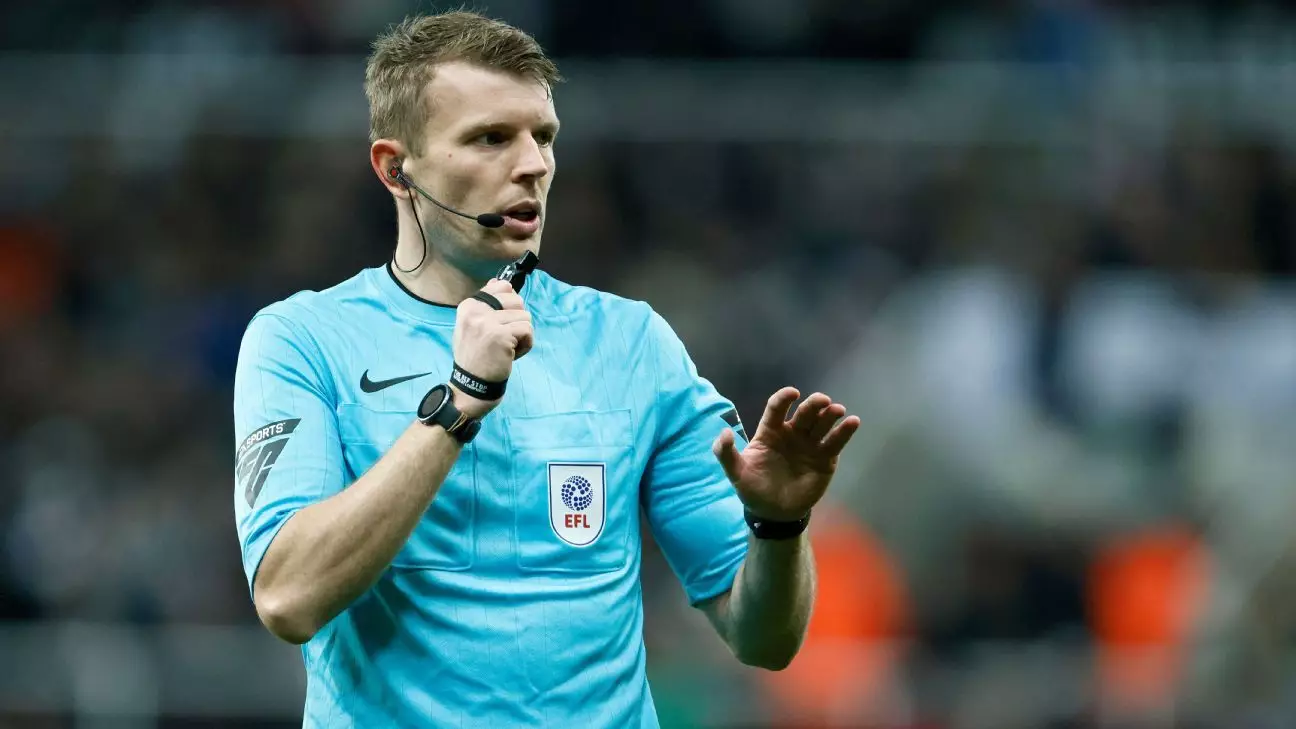Sam Barrott’s rise to prominence in the refereeing world is nothing short of extraordinary. At just 31 years of age, he has navigated the intricate pathways of officiating in a remarkably short span of time. His journey, beginning as a youth player for Halifax Town before being forced to retire from playing due to injury, exemplifies resilience and determination. What could have been a bleak ending to his football career transformed into a new beginning, allowing him to channel his passion for the sport into officiating. This transition speaks volumes about his commitment to the game, illustrating how setbacks can lead to new opportunities.
Barrott’s promotion to FIFA and UEFA’s international refereeing lists within five months of joining the Select Group 1 is indicative of the progressive measures sought by PGMOL (Professional Game Match Officials Limited). This fast-track program is an innovative approach aimed at identifying and nurturing young talent in refereeing, a realm historically marred by drawn-out advancements. Adjustments in how referees are developed provide a glimpse into the evolving landscape of officiating, which is now more dynamic and responsive to emerging talent like Barrott. His swift ascent not only reflects his capabilities but also underscores a significant shift in how young officials are groomed for higher levels of competition.
Sam Barrott didn’t just step into the Premier League lightly; he took charge of 15 fixtures in the 2023-24 season, and the quality of his officiating has earned him notable recognition. Being entrusted with pivotal matches, including encounters between traditional rivals like Arsenal and Manchester United, showcases the faith that football authorities place in him. The transition from officiating in the Championship to managing high-stakes matches emphasizes his readiness to perform under pressure—a crucial skill for any referee operating at the top level. Such experiences can be pivotal, offering Barrott the chance to refine his craft further amidst the electric atmosphere of elite football.
The landscape of officiating has undergone significant scrutiny in recent years, making the role of a referee more challenging than ever. Varied expectations from clubs, players, and fans alike create a complex web of pressures. Barrott’s ability to adapt and thrive in this demanding environment speaks to his professionalism and dedication. His inclusion in the “Second” category of UEFA officials replaces the departing Craig Pawson, marking a noteworthy endorsement of Barrott’s capabilities at the international level. Yet the challenge continues, as Barrott aims to hold his ground among elite peers like Anthony Taylor and Michael Oliver, while trying to elevate his game further.
The broader implications of Barrott’s journey extend beyond mere individual achievements; they signal a profound change in the officiating landscape. The initiative to inject fresh talent into the system through fast-tracked pathways not only retains promising officials but also invigorates the sport with diverse perspectives and a modern approach to refereeing. As Barrott continues to navigate this exciting phase, he embodies the hope for a new generation of referees, and his success could inspire many future officials to realize that a successful career in officiating is within reach, provided they possess the passion, resilience, and commitment to excel.

